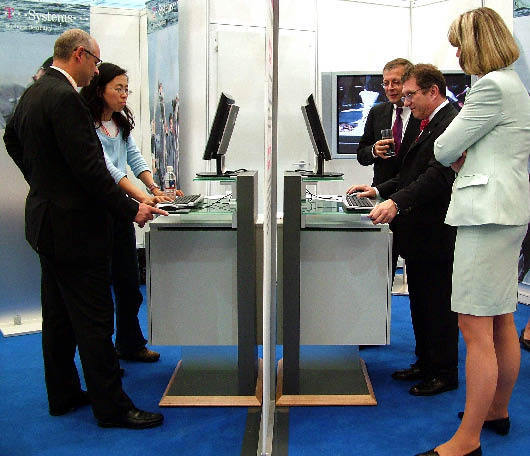|
Homecoming
The huge number of Chinese students studying abroad are one labor pool Larry and his colleagues are tapping. Whereas graduates often sought a short period of employment in their host countries, recruiters expect many will be excited by the prospects at home and want to get into the market as soon as possible. Last February they made a speaking tour targeting students of 10 top-notch MBA programs in American mega cities, such as New York and Los Angeles. The lectures highlighted prospects in various sectors of China's labor market, and the practical business of how to find a job in China.
That was the first time since the year 2000 that the company mounted such a large-scale talent search and speaking tour. They had conducted similar road-shows around 1994 in their startup phase, but the last nine years have been marked by a general fall off in activity, calling for only a couple of speaking tours in a few specific cities.
"This year we decided to pull out all the stops again, principally because the financial crisis is affecting the US employment situation. When an economy is really down, a lot of people get curious about opportunities here, especially the bilingual. So we thought it was time to go," states Larry.
 |
|
Foreign talent looking forward to making a difference in China. |
Larry saw significantly more students turning up to hear what recruiters had to say this time. Noticeably, about 60 to 70 percent of participants were from the ranks of China's mainland professionals currently studying or working in the U.S. In contrast, a decade ago their participants were mainly Chinese Americans and other Asians residing in the U.S.
It fits the profile released by the Ministry of Education. An estimate made by the ministry indicates over 50,000 students returned to China in 2008 – double the number of 25,000 four years previous. China began to send students abroad again in 1978 and has registered 300,000 returnees so far, but the number that made their way home in 2008 alone accounts for nearly one-seventh of that total.
We can only guess at the numbers for 2009. The 11th Guangzhou Technology Fair for Overseas Chinese Students was held at the end of 2008, attracting 1,800 Chinese students from 30 countries. The number of participants was up by 10 percent or so compared to the 2007 one that presaged the 2008 stampede. Participants polled confessed that the staff cuts in foreign institutions turned them back to China. Their original expectations for high salaries haven't survived the experience.
"Students used to prefer staying abroad because of the good life offered by foreign companies, but in these uncertain times no one can expect stability. So more and more Chinese students are coming home," comments Michael Zhang, who himself returned from England in 2005 and currently enjoys the fruits of his timely decision as an employee of an American multinational semiconductor corporation.
| 